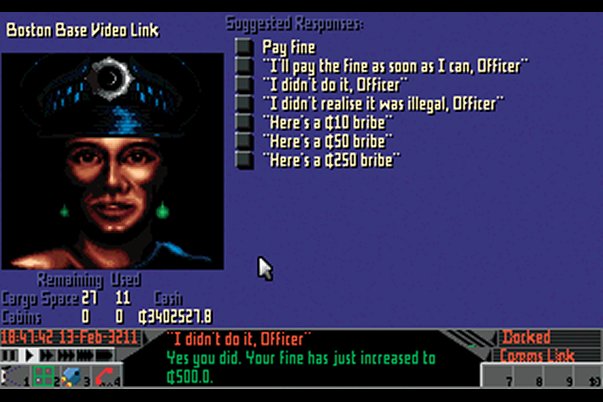Protect and Serve
Squaring up to copy protection in PC games
Aug 22, 2007
Always use protection. Whether you're making a PC game or the monster with two backs (Othello reference - read a book), it's a wise creed. For gamers, however, "protection" presents images of convoluted codes, online subscriptions and idiotic orders to restart your PC before the game can begin. At worse, protection is a short cut to digital STDs: malware, spyware, and more blue-screening than a porn shop in Soho.
Is copy protection in PC games for the greater good of mankind, or is it akin to carrying a TV antenna around a park during a thunderstorm? Game creators are clear where they stand. "I've always liked the idea of creative, nasty, deliberately destructive copy protection," smirks Jon Hare, designer behind the fabled Sensible Soccer franchise. "For example, injecting disabling viruses into pirate's machines, slow degradation of pirated games so they're unplayable after some time, or disabling the ability to save progress in the game if the copy is pirated."

Above: Uh-oh, what ya gonna do when the Frontier:Elite II pirate police come for you?
These days, the games industry is all a fluster about digital thievery. Understandably so. Where once pirates stole from kings, they're now more likely to announce: "Arrrr, I just plundered 20 copies of Saw III." Hardly the toughest kids on the block, then, and when their antics start to effect our own enjoyment of games, it's probably time to start making them walk the plank. But what happens when copy protection starts causing problems for legit gamers?
There was a time when life was far more simple, says Ron Gilbert, creator of LucasArts classics like The Secret Of Monkey Island. "Back in the olden days, we didn't have high-tech copy protection solutions, so we had to resort to low-tech ideas. Because the copy protection wasn't hidden - as it is today - it gave us the chance to be a little creative." Creative and fun. Ye olde PC games politely asked you to refer to the manual in order to prove your credentials. In Frontier: Elite II, sci-fi cops asked the player to: "Please enter the first letter of word X, row Y on page Z." An incorrect entry booted the player out, but at least it played an integral part of the game.
Sign up to the GamesRadar+ Newsletter
Weekly digests, tales from the communities you love, and more


